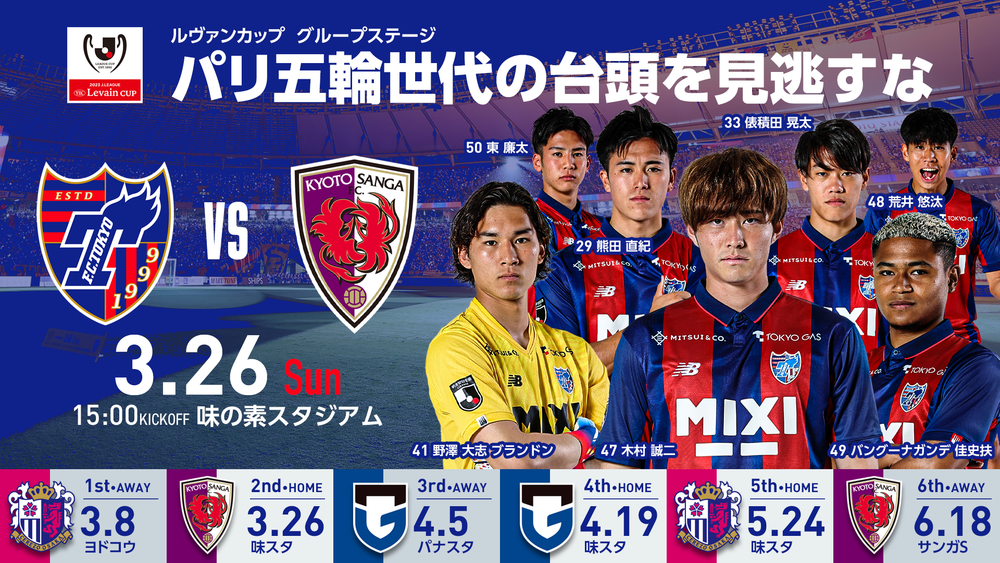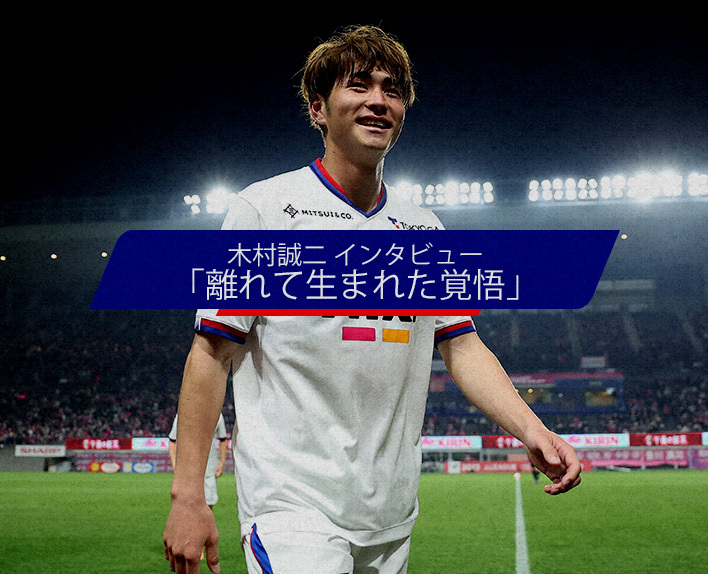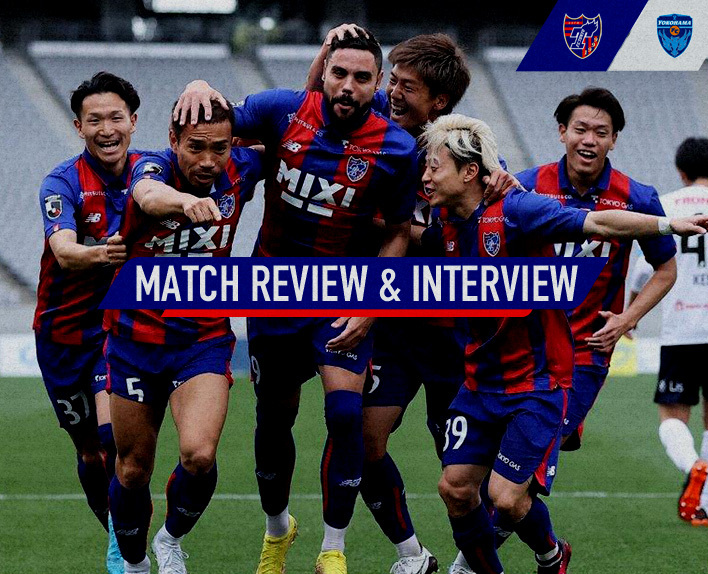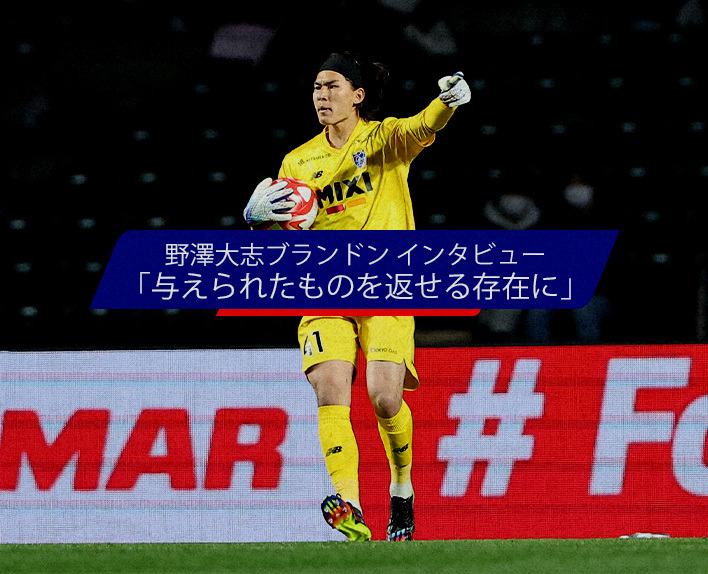Q: In 2018, you made your official debut in a match against Azul Claro Numazu in the opening game of J3 while belonging to FC Tokyo U-18. How did you feel at that time?
Before participating in the U-18 Premier League, I played in J3. I remember feeling nervous due to the limited number of official matches I had played.
Q: What were your thoughts while competing primarily in J3 while belonging to the U-18 team?
A, I believed that continuing to compete in J3, which is at a higher level than U-18, would contribute to my improvement.
Q: Please tell us about the aspects where you gained confidence in the J3 matches that you felt had a high level, as well as the challenges you felt at the same time.
A, what gave me confidence was my defensive ability in one-on-one situations. I also gained confidence because I didn't lose in aerial battles. My challenges are the speed of movement and decision-making speed. The decision-making speed of the professional players I played with was faster compared to mine, and my thoughts were slow and shallow, so I felt a significant gap. I still need to improve on predicting and communicating when marking opposing players.
Q: In the club's survey, you answered that you started aiming to become a professional soccer player from the time you played in J3. What goals did you set for yourself during high school? What efforts did you make to achieve those goals?
I was only thinking about being promoted to the top team. I felt that I needed physical weight, agility, and strength. Considering that it is a position where I cannot be overpowered, I valued physical conditioning and consciously worked on strength training.
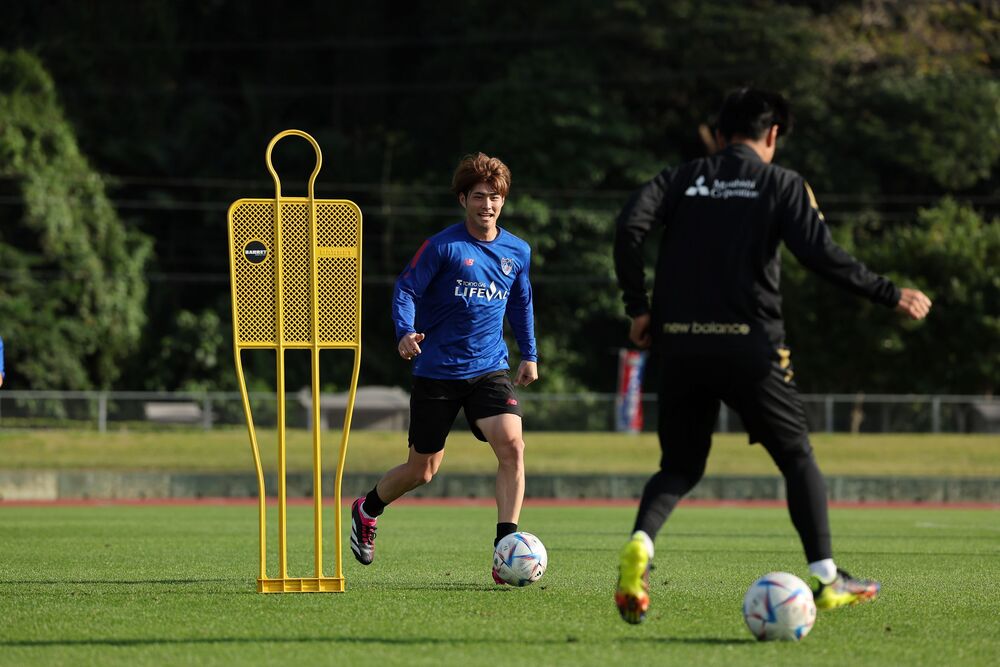
Q, You were promoted to the top team in the 2020 season. While not getting playing opportunities, you were loaned to Kyoto SANGA F.C., SC Sagamihara, and Montedio Yamagata. How did you feel when you left FC Tokyo, where you had grown since U-15?
I didn't feel like it was a one-way trip; I felt like I was going out to train. I was thinking with the premise of coming back. At first, I don't think I had the feeling of "I will come back after making a name for myself." Looking back now, I might not have been fully prepared. I didn't have the desire to play in matches in Kyoto to the extent of receiving offers. I think it became just about playing in matches, not for the team. I feel that was the reason I couldn't play in matches in Kyoto.
Q: What did you learn at your new club?
A, the importance of not creating fluctuations in feelings and physical condition. There are countless factors that can disrupt mental stability, such as changes in the environment and playing with various players, as well as times when you can and cannot participate in matches. I believe what matters is how much you can do what you need to do.
Q: I believe that leaving Tokyo has led to many new encounters.
A, Yamagata particularly felt the connection to the community. The distance between fans and supporters is close, and there aren't many large commercial facilities, so I was able to feel the support through interactions in the city. I transferred to three teams, but people's perspectives differ, and the style of football varies depending on the coach. I experienced the difficulty of needing to adapt even with the soccer style I have been practicing.
Q: Before transferring, did the experience with three different teams change your feelings, which you initially thought was a one-way journey?
A, the time away from Tokyo has increased, and I felt that I was unconsciously focusing on the team I belonged to and being influenced by its colors.
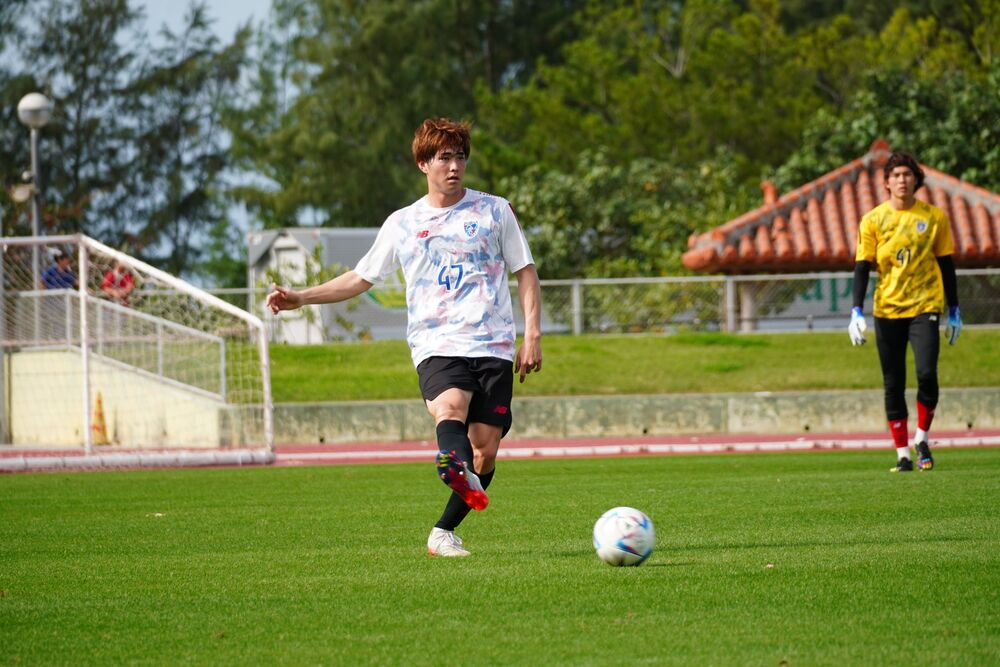
Q: Please tell us how you felt when it was decided that you would return to Tokyo during the 2022 season.
Due to an accident such as the injury of Henrique, I had the feeling that it was the right timing to return to Tokyo unexpectedly. Even during the period when I couldn't participate in matches, I maintained high motivation and focused on training, thinking about fighting in Yamagata for the entire year. However, from the moment I decided to return to Tokyo after considering the benefits of staying in Yamagata or going back, I switched my mindset to being involved in matches in Tokyo and achieving victories. Of course, it is thanks to the player's efforts and performance, but I believe that Coach Albert is someone who gives young players like Kashif BANGNAGANDE and first-year player Kuryu MATSUKI the opportunity to play, and that he is a coach who can rotate players depending on the match, which I thought was beneficial for me.
Q: How was the atmosphere of the team after joining in Tokyo? Was there a difference in the team before the transfer and when you returned?
A, the atmosphere had not changed. It was relaxed, yet when it needed to be serious, it was serious, and if there was light play, the players would argue among themselves. I felt reassured that this is J1.
Q: Please tell us about the players you particularly interacted with after joining.
A, Yoshifumi Kashiwa has been close with his peers since they joined together. Although Nakamura and Konno are four years older, they were in the same class when they joined the team, so they got along well. Many players have changed since I transferred, and they made sure I could fit in well with the team. I especially appreciate Higashi for always encouraging me during practice.
Q: What kind of魅力 does player Yoshifumi have?
A, Kafumi Yoshifumi never complains. Even though anyone would want to express their frustrations when they have unpleasant experiences, it never comes from him. Being with him feels good, and there is absolutely no bad feeling. That is the kind of person Kafumi Yoshifumi is, his kindness, and I really like that about him.
Q: Kafumi KIMURA and Taishi Brandon NOZAWA are同期 who were promoted from the academy to the top team. What do they mean to you?
A, I have known Yoshifumi Nozawa since we were in the first year of middle school, so it feels like we are childhood friends. Nozawa has been with us since U-18, but we have spent a lot of time together, especially during the COVID-19 pandemic in 2020 when we couldn't go outside; we watched movies together. We don't frequently keep in touch, but when we are together, it feels reassuring as he is truly a good friend.
Q: When asked about players who became friendly at the time of joining, Hotaka NAKAMURA's name came up. In the player profile on the homepage, he also mentioned NAKAMURA when asked, "If you could choose a teammate to be your brother, who would it be?" Is NAKAMURA, who is four years older than Kimura, a reliable presence that you would want as a brother?
A, since we joined the team at the same time, it's easy to talk to each other, and during the off-season, we go out for meals together, spending a lot of time together. Even when I returned to Tokyo, he remained friendly just like before my transfer. Player Nakamura, being older, treats me like a younger brother, and he feels like a reliable and friendly older brother.
Q: On the player profile page of the homepage, you mentioned Masato MORISHIGE as the player who influenced you and the player you were most shocked by in past matches. What does Masato MORISHIGE mean to you?
A, when I joined U-15 Fukagawa and went to watch a match with all my teammates for the first time, player Morishige was on the field. The center-back position is not known for flashy or showy plays, but he demonstrated his skill with subtle plays. In terms of defense, I saw plays that were undeniably strong and unyielding, and I thought, 'Is there really such a skilled center-back?' For nearly 10 years since I first saw him, he has consistently been a starter, and he is an idol-like presence that makes me think, 'This person is amazing.'
Q: What kind of influence did Morishige have on Kimura?
I used to think that a center-back just needed to be strong and able to defend, but after watching Morishige, I learned that skill is also necessary. I believe everyone can see how amazing Morishige is, even if they don't play the same position, and there is no center-back as good as him. I try to arrive at the clubhouse early, but every day Morishige comes to the field even earlier, taking care of himself and doing stretches to prepare for practice. After practice, he does more than enough strength training and care. While age may play a role, I think everything from before practice to after practice has become a life dedicated to soccer.
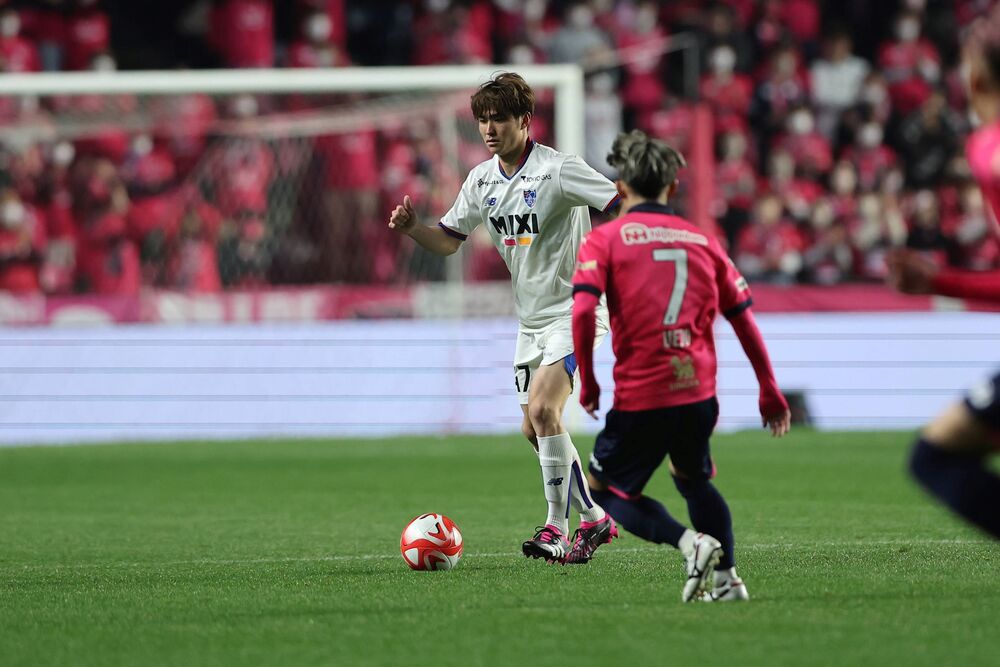
Q: Please tell us the team's goals for the 2023 season and your personal goals.
A, the team is aiming for the J1 League championship together. Personally, since my playing time was short last season, I want to increase the number of matches I start.
Q: Please tell us about your strengths and points you would like to highlight.
I think it's physical ability. I received a strong body from my parents, so I want to make the most of it myself. Since I rarely lose in height, speed, and power, I want to use them as my strengths.
Q: Please say a word to the fans and supporters ahead of the Levain Cup match against SANGA S.
A, since the season has started, I haven't been involved in any matches yet. I want to achieve results in the Levain Cup and show good play to the fans and supporters, demonstrating a winning performance. I will also do my best to be involved in the league matches, so please support me.
